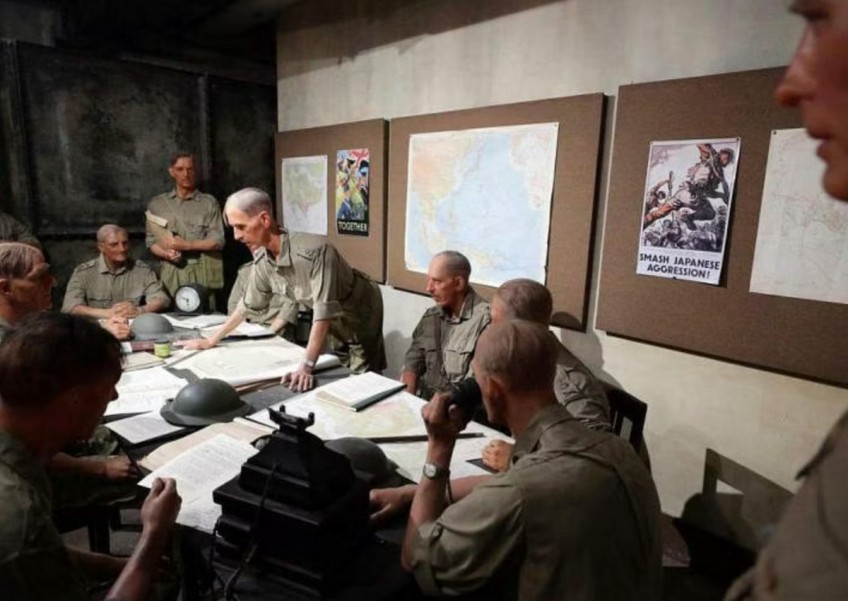The Battlebox in Fort Canning Park to become free to public from October


SINGAPORE — Admission to The Battlebox, an underground command centre in Fort Canning Park, will be free to the public when it reopens from Oct 3 under a new operator.
The Battlebox is the site where the British decided to surrender to the Japanese during World War II.
Non-profit arts and culture organisation Global Cultural Alliance will be taking over the subterranean complex from heritage consultancy Singapore History Consultants, which closed the site in May.
The new operator was awarded a contract by the National Parks Board on Feb 20 after an open tender.
Prior to its closure in May, entry to The Battlebox cost $20 for adults and $10 for children aged seven to 12.
Global Cultural Alliance's assistant manager for content development and partnerships Michel Tan told The Straits Times that the organisation believes the historical site "should be made freely available and easily accessible to the public".
She added that donations would be encouraged for the site's upkeep and future content updates.
The Battlebox's corridors and rooms are located about 9m underground.
The bunker spans some 1,166.5 sq m and is about the size of three basketball courts.
Among its features are a cipher room for decoding messages, a signal room and a plotting room, where the British mapped the locations of friendly and hostile aircraft.
While admission is free, visitors will be charged if they wish to enjoy some of the enhancements that the non-profit will be introducing at the site, such as virtual reality (VR) elements.
Ms Tan said that through the use of VR, visitors will get to immerse themselves in key moments that led up to the British surrender.
"The experience will bring history to life by letting people be involved in those scenes and not just be passive bystanders reading about history that has passed," said Ms Tan.
She noted that the non-profit — which previously operated properties such as The Arts House and Goodman Arts Centre, and produces concerts such as ChildAid — has strengths in programming and production.
By tapping its multifaceted experience, it will offer visitors "deeper learning opportunities" at The Battlebox when it reopens, she added.
The prices of the VR experiences, as well as guided tours of the bunker, will be announced when ready.
Referring to Singapore's fall in World War II, Ms Tan said: "We would like people to draw lessons of leadership and decision-making in crisis from this historical event, to make better decisions today."
To ensure the historical accuracy of its experiences, Global Cultural Alliance has put together an advisory team led by independent curator Tan Teng Teng, who was involved in establishing The Battlebox as a museum when it first opened to the public in 1997.
Also on the team are historian Ernest Chew; Dr Kevin Tan, founding president of the International Council on Monuments and Sites Singapore; and Mr Peter Stubbs, an amateur historian known for his military history research.
Heritage author and blogger Jerome Lim told ST that the previous cost of admission to The Battlebox was "quite steep".
He added that free entry will be particularly beneficial to families with children of school-going age, who will gain from learning about the site's significance.

Mr Lim said that he hoped the use of technology would allow the final moments leading to the British surrender to be captured and presented more effectively, especially to a younger audience.
Comparing it with other military sites of historical importance, such as Fort Siloso and Labrador Battery, he said that The Battlebox is quite different. "A visit to it will provide a much better appreciation of the difficult and cramped conditions, and the duress under which the commanders came to the decision to surrender," he said.
Global Cultural Alliance's contract is for three years, with the option for two further extensions of three years each.
ALSO READ: Peranakan Museum reopens with 9 galleries chock-full of culture and memories
This article was first published in The Straits Times. Permission required for reproduction.